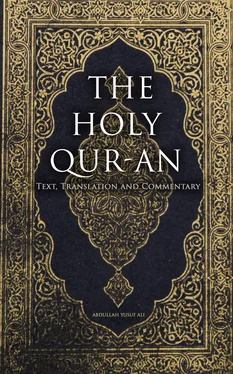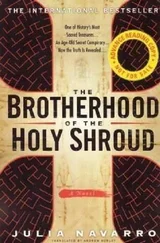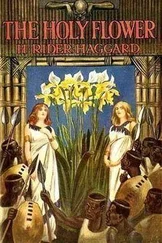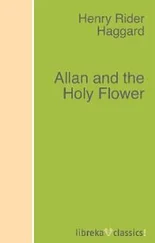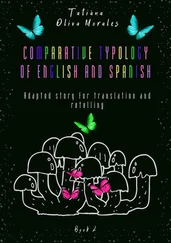To send as Messengers, preaching, working
In the dim twilight of history,
Wherein men fashion legends
After their own hearts, and dimly seek
A light afar, remote from the lives,
Mean and sordid, such as they knew.
C. 18.—But Muḥammad came in the fullest blaze
Of history; with no learning he put to shame
The wisdom of the learned; with pasture folk
He lived and worked, and won their love; in hills
And valleys, caves and deserts, he wandered,
But never lost his way to truth and righteousness;
From his pure and spotless heart the Angels washed
Off the dust that flew around him; through the ways
Of crooked city folk, he walked upright and straight,
And won from them the ungrudging name
Of the Man of Faith who never broke his word.
C. 19.—To the Praiseworthy indeed be praise:
Born in the Sacred City he destroyed
Its superstition; loyal to his people to the core,
He stood for all humanity; orphan-born
And poor, he envied not the rich,
And made his special care all those
Whom the world neglected or oppressed,—
Orphans, women, slaves, and those in need
Of food or comforts, mental solace, spiritual strength,
Or virtues down-trodden in the haunts of men.
C. 20.—His mother and his foster-mother
Loved and wondered at the child;
His grandfather, ’Abdul Muṭṭalib,
Of all his twice-eight children and their offspring,
Loved him best and all his sweet and gentle ways;
His uncle Abu Ṭālib, loth though he was
To give up the cult of his fathers,
Knew well the purity of Muḥammad’s
Mind and soul, and was his stoutest champion
When the other chiefs of Mecca sought to kill
The man who challenged in his person
Their narrow Pagan selfish lives.
C. 21.—To his cousin ’Alī, the well-beloved,
Born when he was thirty, he appeared
As the very pattern of a perfect man,
As gentle as he was wise and true and strong,
The one in whose defence and aid
He spent his utmost strength and skill,
Holding life cheap in support of a cause so high,
And placing without reserve his chivalry,
His prowess, his wit and learning, and his sword
At the service of this mighty Messenger of God.
C. 22.—Not till the age of forty did he receive
The Commission to stand forth and proclaim
The Bounty of God, and His gift, to lowly Man,
Of knowledge by Word and Pen; but all through
His years of preparation he did search
The Truth: he sought it in Nature’s forms and laws,
Her beauty and her stern unflinching ways;
He sought it in the inner world
Of human lives, men's joys and sorrows,
Their kindly virtues and their sins
Of pride, injustice, cruel wrong,
And greed of gain, scarce checked by the inner voice
That spoke of duty, moral law, and higher still,
The Will Supreme of God, to which the will
Of man must tune itself to find its highest bliss.
C. 23.—But he grew steadfastly in virtue and purity;
Untaught by men, he learnt from them, and learned
To teach them; even as a boy of nine,
When he went in a trade caravan with Abu Ṭālib
To Syria, his tender soul marked inwardly
How God did speak in the wide expanse
Of deserts, in the stern grandeur of rocks,
In the refreshing flow of streams, in the smiling
Bloom of gardens, in the art and skill with which
Men and birds and all life sought for light
From the Life of Lives, even as every plant
Seeks through devious ways the light of the Sun.
C. 24.—Nor less was he grieved at Man’s ingratitude
When he rebelled and held as naught the Signs
Of God, and turned His gifts to baser uses,
Driving rarer souls to hermit life,
Clouding the heavenly mirror of pure affections
With selfish passions, mad unseemly wrangles,
And hard unhallowed loathsome tortures of themselves.
C. 25.—He worked, and joyed in honest labour;
He traded with integrity to himself and to others;
He joined the throngs of cities and their busy life,
But saw its good and evil as types
Of an inner and more lasting life hereafter;
People gladly sought his help as umpire
And peacemaker because they knew his soul
Was just and righteous: he loved the society
Of old and young, but oft withdrew to solitude
For Prayer and inward spiritual strength;
He despised not wealth but used it for others;
He was happy in poverty and used it as his badge
And his pride when wealth was within his reach
But not within his grasp, as a man among men.
C. 26.—At twenty-live he was united in the holy bonds
Of wedlock with Ḵẖadīja the Great, the noble lady
Who befriended him when he had no worldly resources,
Trusted him when his worth was little known,
Encouraged and understood him in his spiritual struggles,
Believed in him when with trembling steps
He took up the Call and withstood obloquy,
Persecution, insults, threats, and tortures,
And was a life-long helpmate till she was gathered
To the saints in his fifty-first year,—
A perfect woman, the mother of those that believe.
C. 27.—There is a cave in the side of Mount Ḥiraa
Some three miles north of the City of Mecca,
In a valley which turns left from the road to ’Arafāt,
To which Muḥammad used to retire for peaceful contemplation:
Often alone, but sometimes with Ḵẖadīja.
Days and nights he spent there with his Lord.
Hard were the problems he revolved in his mind,—
Harder and more cross-grained than the red granite
Of the rock around him,—problems not his own,
But his people’s, yea, and of human destiny,
Of the mercy of God, and the age-long conflict
Of evil and righteousness, sin and abounding Grace.
C. 28.—Not till forty years of earthly life had passed
That the veil was lifted from the Preserved Tablet
And its contents began to be transferred to the tablet of his mind,
To be proclaimed to the world, and read and studied
For all time,—a fountain of mercy and wisdom,
A warning to the heedless, a guide to the erring,
An assurance to those in doubt, a solace to the suffering,
A hope to those in despair,—to complete the chain
Of Revelation through the mouths
Of divinely inspired Apostles.
C. 29.—The Chosen One was in the Cave of Ḥiraa.
For two years and more he had prayed there and adored
His Creator and wondered at the mystery
Of man with his corruptible flesh, just growing
Out of a clot, and the soul in him
Reaching out to knowledge sublime, new
And ever new, taught by the bounty
Of God, and leading to that which man himself
Knoweth not. And now, behold! a dazzling
Vision of beauty and light overpowered his senses,
And he heard the word " Iqraa! "
C. 30.—" Iqraa! "—which being interpreted may mean "Read!" or "Proclaim!” or "Recite!” The unlettered Apostle was puzzled; He could not read. The Angel seemed To press him to his breast in a close embrace, And the cry rang clear " Iqraa! " And so it happened three times; until The first overpowering sensation yielded To a collected grasp of the words which made clear His Mission; its Author, God the Creator, Its subject, Man, God’s wondrous handiwork, Capable, by Grace, of rising to heights sublime; And the instrument of that mission, the sanctified Pen, And the sanctified Book, the Gift of God, Which men might read, or write, or study, or treasure in their souls.
Читать дальше
